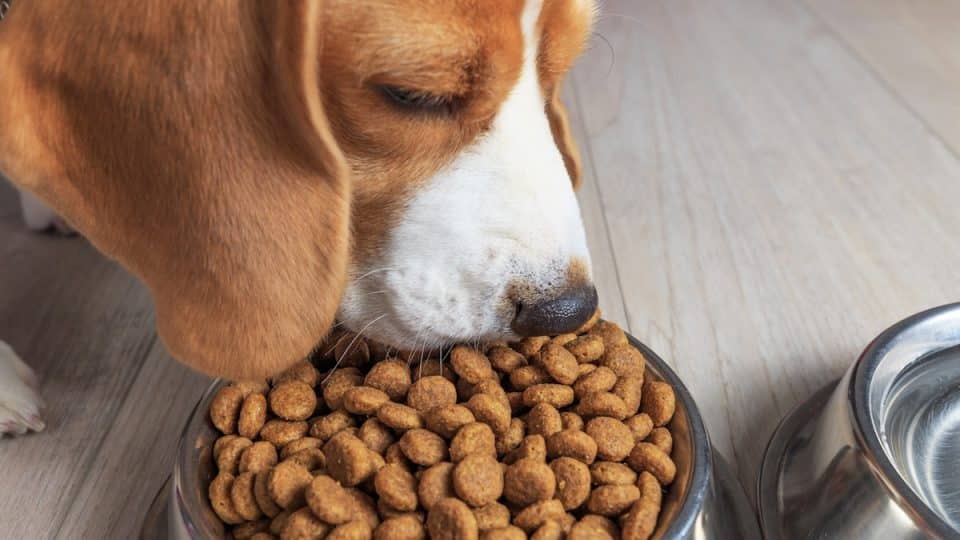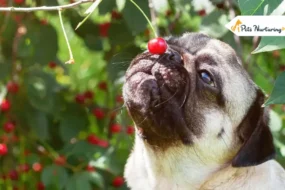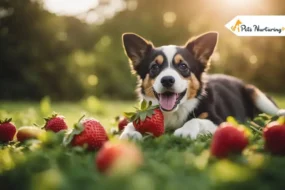
In an era where environmental consciousness is paramount, it’s time to take a closer look at an often-overlooked aspect of our carbon footprint: our pets’ diets. As devoted dog owners, we strive to provide the best nutrition for our furry companions. But have you ever considered the environmental impact of your dog’s food bowl? Let’s delve into the world of sustainable dog food and discover why insect protein is emerging as the eco-friendly solution of the future.
The Hidden Environmental Cost of Traditional Dog Food
Before we explore the benefits of insect protein, it’s crucial to understand the environmental impact of conventional pet food production:
- Water Usage:
- Producing 1kg of beef protein requires a staggering 20,000 litres of water.
- Land Use:
- Traditional livestock farming for pet food is a major driver of deforestation.
- Cattle ranching accounts for 80% of current deforestation in the Amazon rainforest.
- Carbon Emissions:
- The pet food industry generates about 64 million tonnes of carbon dioxide equivalent emissions annually.
- This is comparable to the emissions from 13.6 million cars on the road per year.
These statistics paint a stark picture of the environmental cost of traditional pet food. However, innovative companies like Omuu are leading the charge of developing sustainable alternatives.
Enter Insect Protein: A Sustainable Revolution in Dog Nutrition

Insect protein, particularly from sources like the black soldier fly larvae, is emerging as a game-changer in sustainable pet nutrition. Here’s why it’s creating such a buzz:
- Minimal Water Usage:
- Insect farming requires just 1 litre of water to produce 1kg of protein.
- This represents a 99.9% reduction in water usage compared to beef production.
- Efficient Land Use:
- Insects can be farmed vertically, requiring much less land than traditional livestock.
- Insect farming needs only 3% of the land used for beef production.
- Lower Carbon Emissions:
- Insect production generates only about 1% of the greenhouse gas emissions associated with beef production.
- This significant reduction in carbon footprint makes insect protein a truly sustainable option.
- Circular Economy:
- Many insects used for pet food can be raised on clean food waste that would have otherwise been destined for landfill. They are natural recyclers.
- The ‘leftover’ by-products from insect farming are rich in minerals and can be used to plant more trees and grow vegetables.
- This helps reduce waste and creates a more circular, sustainable economy.
The Nutritional Powerhouse: Insect Protein for Dogs
While the environmental benefits of insect protein are clear, you might be wondering about its nutritional value for your furry friend. Rest assured, insect protein is not just sustainable; it’s also incredibly nutritious:
- High-Quality Protein: Insects are rich in protein, containing all essential amino acids dogs need for optimal health.
- Excellent Digestibility: Studies have shown that insect protein is highly digestible for dogs, meaning efficient nutrient utilization.
- Hypoallergenic Properties: Many dogs with allergies to common protein sources can tolerate insect protein well.
- Rich in Essential Fatty Acids: Certain insect species are naturally rich in omega-3 and omega-6 fatty acids, supporting skin, coat, and joint health.
- Packed with Micronutrients: Insects are good sources of essential minerals like iron, calcium, and zinc, as well as vitamins B12 and D.
The Expert’s Perspective: Dr. Frank on Sustainable Dog Food
Dr. Frank, a renowned veterinary surgeon with over two decades of experience in animal health and nutrition, shares his insights on the future of sustainable dog food:
“The shift towards insect protein in pet food is not just a trend; it’s a necessary evolution in how we approach pet nutrition and environmental responsibility,” Dr. Frank explains. “As a veterinarian, I’m excited about the potential of insect protein to provide excellent nutrition for our pets while significantly reducing their environmental pawprint.”
Making the Switch: Transitioning Your Dog to Sustainable Food

If you’re convinced about the benefits of insect protein and want to make the switch, here’s a guide to help you transition your dog to this sustainable diet:
- Gradual Transition:
- Day 1-3: 75% current food, 25% insect protein food
- Day 4-6: 50% current food, 50% insect protein food
- Day 7-9: 25% current food, 75% insect protein food
- Day 10 onwards: 100% insect protein food
- Stay Hydrated: Ensure your dog has access to fresh water at all times during the transition.
- If you have any concerns or if your dog has specific health issues, get in touch with our dedicated Omuu Veterinary team with any questions or consult with your veterinarian before making the switch.
The Future is Sustainable: Join the Insect Protein Revolution
As pet owners, we have the power to make a significant impact on the environment through our choices. By opting for sustainable dog food options like insect protein, we’re not just providing excellent nutrition for our furry friends; we’re also taking a stand for environmental conservation.
The future of pet nutrition is sustainable, and insect protein is leading the way. It offers a solution that’s good for our dogs, good for our planet, and aligns with our values as responsible pet owners.
Ready to reduce your dog’s environmental pawprint? Explore sustainable, insect-based dog food options like those offered by Omuu and join the pet nutrition revolution today.
Your dog—and the planet—will thank you!
Remember, every bowl counts in the journey towards a more sustainable future for pet nutrition. Make the switch to insect protein today and be part of the solution!
Explore More:











